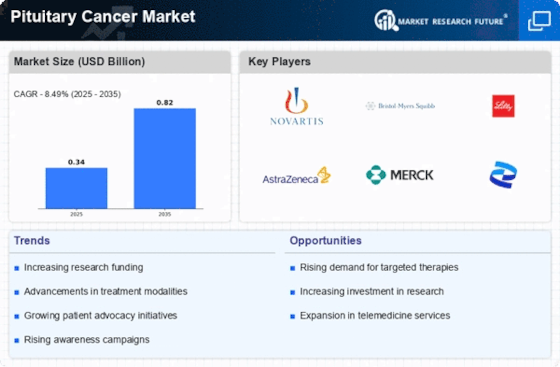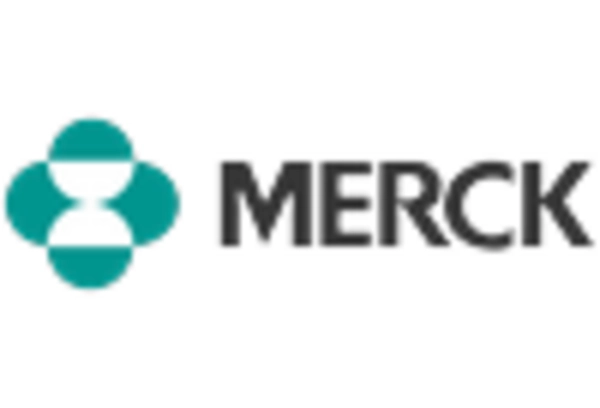Market Trends
Key Emerging Trends in the Pituitary Cancer Market
Pituitary cancer market trends are showing a number of important developments, indicating a dynamic healthcare industry. Currently, pituitary cancer is not a common illness but the rise in technological diagnosis and discovery has significantly attracted attention to it. Nevertheless, this proactive approach allows health care providers to detect Pituitary Cancer at its early stages which consequently leads to better patient outcomes and increased survival rates.
Moreover, pharmaceutical industry’s contribution in the market moves towards targeted therapies for Pituitary Cancer is essential. The aim of these remedies is hitting specific molecular pathways that contribute to the disease hence making healing process more effective and individualized. Besides, as personalized medicine begins taking root, there is need to tailor treatments based on one’s genetic profile leading to efficient targeting process.
Furthermore, increased collaboration between pharmaceutical companies, research facilities and health institutions has prompted an environment that supports innovation. It therefore implies that sharing resources and knowledge speeds up development of new treatment modalities and therapeutic approaches in relation to Pituitary Cancer. For the disease complexity issues improve patients’ results can only be achieved through team work spirit.
On another note of patient care delivery system, there is an observable inclination towards holistic approach whereby healthcare professionals start recognizing emotional support needs and psychological well-being needs among its population than just physical conditions resulting from pituitary cancer only. Supportive care programs as well as patient advocacy organizations are becoming visible following their comprehensive approach to caring for individuals with or impacted by the pituitary cancer type.
These attempts also include awareness campaigns and training programs run for both medical practitioners as well as general public on what they should know about Pituitary Cancer including its risk factors, symptoms and importance of early detection initiatives. Increased knowledge about the condition leads to timely intervention measures because more people would know when exactly they suffer from it unlike before where market dynamics were left unattended due lack information about this illness.
However there have always been problems facing pituitary cancer markets including rareness of these diseases, making it difficult to have clinical trials with large numbers of patients and data enough for research. Furthermore, some patients cannot afford advanced treatments and therapies that are expensive requiring constant attempts towards cheaper and more available innovations.



















Leave a Comment